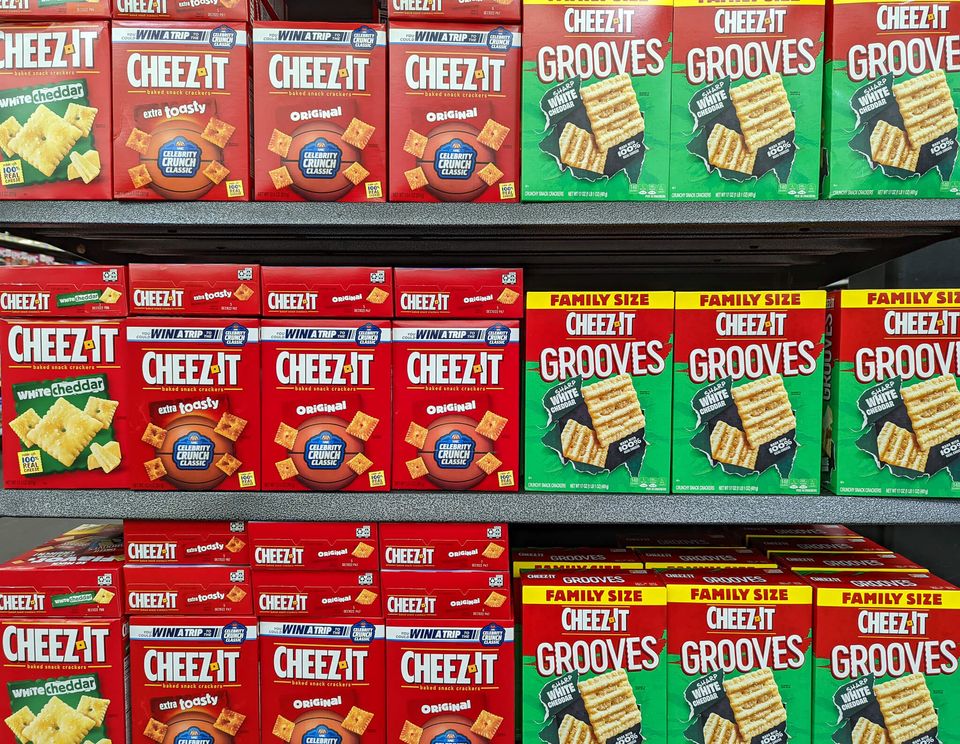You Aren't What You Eat (Newsletter 051)

Greetings friends.
Everyone knows you are what you eat. That's been the cornerstone of nutrition advice for a long time. Of course, people don't literally turn into a carrot or, more likely, a bag of Doritos, as a result of their regular consumption. But we certainly understand that the stuff we eat is going to directly influence our health.
To which I say, it's complicated. The more we learn about nutrition, the more we learn that our inputs do not directly correlate to outputs. Our bodies are immensely complex, and we are just starting to understand how poorly our simple models serve us.
Let's explore this with the core tenants of nutrition advice over the decades. This is the advice that was considered rock solid and touted by health authorities to the consuming public. As a result, the following list contains dietary advice that everyone knew was true:
- Cholesterol is bad for you
- Fat is bad for you
- Salt is bad for you
- Carbohydrates are bad for you
- Sugar is bad for you
We Were Wrong about Cholesterol
Pity the poor poultry industry. For decades, eggs were considered the Devil's own handiwork. Why? A little back story is necessary to understand.
Like so many things on this list, you can trace the vilification of cholesterol to the fact that heart disease has been American's leading cause of death for many years. The number of deaths from heart disease has remained persistently, stubbornly high despite every intervention by health authorities. (You would think that the medical community's failure to make more progress would give them cause for humility, but that's another topic.)
Because so many people were dying from heart disease, health authorities of course wanted to know why. They looked at factors those in ill health had in common and it turns out high cholesterol was a common factor in people with clogged arteries. Hence, the natural conclusion to recommend that people eat less cholesterol.
The only problem is that the conclusion was wrong. Turns out that the large majority (85%) of cholesterol in your blood is made by the body in your liver. It doesn't come from cholesterol in food you eat but is determined largely by genetics. Hence, health authorities no longer recommend worrying about eating foods high in cholesterol. Yay, eggs are OK again!
You will note that health authorities have not been able to entirely give up on their crusade against cholesterol. That's why you will have discussions of "bad" cholesterol (LDL) and "good" cholesterol (HDL) when you see your doctor.
We Were Wrong about Fat
Not to be swayed by being dead wrong about cholesterol, health authorities fingered a new culprit. It is fat we should be worried about and eliminate from our diets.
People who had heart problems consumed more fat. Thus, if people consumed less fat, we should see less heart disease. In the meantime, you probably know that the initial conclusion about fats was equally flawed as it was for cholesterol.
Turns out we need to eat certain types of fat because it's a major source of energy, helps us absorb vitamins and minerals, and allows us to build cell membranes and the sheaths surrounding nerves. Among other functions. Trying to cut out fats was not making us healthier.
Now we need to distinguish between trans fats, polyunsaturated and monounsaturated fats, and saturated fats. Never mind that some of these fats were themselves the creation of the food industry trying to address the initial worry about fat and cholesterol. The original margarine spreads were meant to be a healthy alternative to butter, with its saturated fat. The problem was margarine contained heavy amounts of trans fat, which it turns out is worse for us than saturated fat.
Oh well, never mind that, we think the real culprit is salt!
We Were Wrong about Salt
Another heart condition we worry about is high blood pressure. Lo and behold, it looked like people with high blood pressure consume more salt than people without high blood pressure. You can already guess the knee-jerk reaction of health authorities: cut salt out of your diet.
Authorities are aware that salt is an essential nutrient for the human body, necessary to balance fluids (i.e. to maintain a healthy blood pressure) and for nerve and muscle function. So the recommendation is to avoid "excess" salt. Not really helpful, but the vagueness is necessary. That's because it turns out that individuals react differently to salt consumption.
In any event, recent meta reviews found that salt reduction had little to no effect on the risk of heart disease or death. Or maybe it has a reduced risk of death, but only in overweight individuals. Certainly, there is insufficient linkage to justify the salt-shaming that we've all suffered through.
We Were Wrong about Carbohydrates
The link between carbohydrates and heart disease is indirect. An increasing percentage of the population is overweight or obese, which is a major risk factor for heart disease. Hence the recommendation to maintain a healthy weight and the search for diets to accomplish weight loss. Low or no carbohydrate diets became popular because adherents see rapid weight loss in the early weeks.
But like all the topics on this list, it's not so simple. Carbohydrates are the body's main source of energy. Some carbohydrates are healthier than others. The carbohydrates in fiber help with digestion and maintain healthy cholesterol levels. Thus, rather than contributing to heart disease, some carbohydrates help lower one's risk of heart disease and strokes.
Sugar is the simplest form of carbohydrate. You find it in fruits (fructose), table sugar (sucrose) and milk (lactose). Manufacturers add sugar to many foods to make them taste better. Thus "added" sugar has become the latest villain in the long line of health authorities' foes.
Now It's Sugar's Turn as the Villain
Having learned nothing from their prior episodes of assuming causation in the face of mere correlation, scientists looked at the health outcomes for people who consumed more of their calories in the form of added sugar. They found this created a higher risk of dying from heart disease than for people who consumed fewer added sugar calories.
Note that sugar itself does not appear to have any significant direct negative health effects. The connections to heart health are indirect: overloading the liver, leading to fat accumulation, causing fatty liver disease, which contributes to diabetes, which raises the risk of heart disease. Or perhaps sugar raises blood pressure and contributes to chronic inflammation, on the way to contributing to weight gain. We're not sure.
According to the Mayo Clinic "added sugar probably isn't harmful in small amounts." Notice the use of the weasel word "small." How much is too much? Whatever causes a health problem. The amount differs from person to person because, again, the human body is a complex system.
Although sugar presently remains squarely in the medical profession's crosshairs, chances are good that within 10 or 20 years, we'll be hearing a different story. It can't come soon enough for my taste.
This week's Moral Letter 101 On Making Plans deals squarely with the question of what we can control. With so much uncertainty in life, to say nothing of our diets, what sense does it make to plan for the future? I provide several reasons why planning is sensible, and what benefits we get from our planning.

In Moral Letter 102 On What Survives Us, we discuss the impermanence of human lives and what survives after we pass away. Although for most of us the answer will be "very little," there are ways to achieve a lasting legacy.

If you want to achieve a legacy that outlasts your life, you need to make plans. Plan for the right reasons, which do not include your vanity or reputation, and you increase your chances of success.
To end, I am struck by how often people's real-world behavior is at odds with what we expect of them. Are our expectations unreasonable? Are people unreasonable? In Paradise Found this week, A Guide to the Best Methods of Tire Disposal, I simply describe what we observe in practice. I leave it to you to take the moral from the story.

And if you think you see any judgment between the lines, perhaps it's in your eyes only.
Be well.







Member discussion